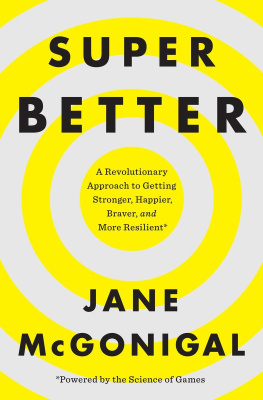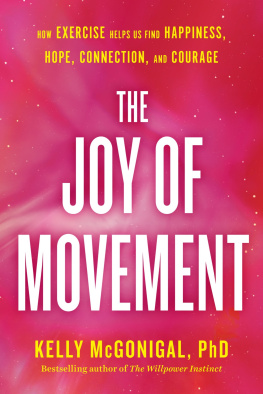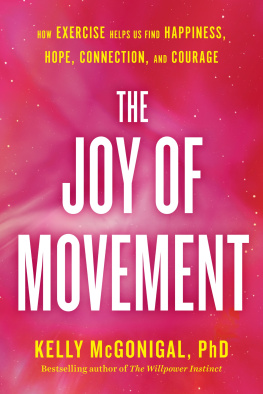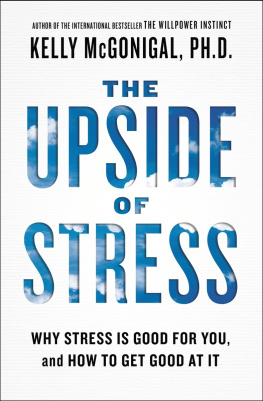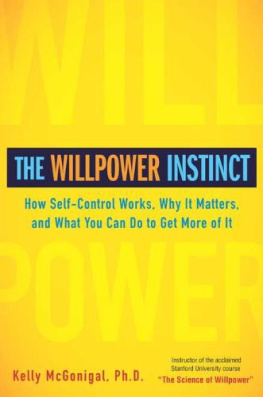Jane McGonigal - Imaginable: How to see the future coming and feel ready for anything - even things that seems impossible today
Here you can read online Jane McGonigal - Imaginable: How to see the future coming and feel ready for anything - even things that seems impossible today full text of the book (entire story) in english for free. Download pdf and epub, get meaning, cover and reviews about this ebook. year: 2022, publisher: Spiegel & Grau, genre: Politics. Description of the work, (preface) as well as reviews are available. Best literature library LitArk.com created for fans of good reading and offers a wide selection of genres:
Romance novel
Science fiction
Adventure
Detective
Science
History
Home and family
Prose
Art
Politics
Computer
Non-fiction
Religion
Business
Children
Humor
Choose a favorite category and find really read worthwhile books. Enjoy immersion in the world of imagination, feel the emotions of the characters or learn something new for yourself, make an fascinating discovery.

- Book:Imaginable: How to see the future coming and feel ready for anything - even things that seems impossible today
- Author:
- Publisher:Spiegel & Grau
- Genre:
- Year:2022
- Rating:5 / 5
- Favourites:Add to favourites
- Your mark:
- 100
- 1
- 2
- 3
- 4
- 5
Imaginable: How to see the future coming and feel ready for anything - even things that seems impossible today: summary, description and annotation
We offer to read an annotation, description, summary or preface (depends on what the author of the book "Imaginable: How to see the future coming and feel ready for anything - even things that seems impossible today" wrote himself). If you haven't found the necessary information about the book — write in the comments, we will try to find it.
Jane McGonigal: author's other books
Who wrote Imaginable: How to see the future coming and feel ready for anything - even things that seems impossible today? Find out the surname, the name of the author of the book and a list of all author's works by series.
Imaginable: How to see the future coming and feel ready for anything - even things that seems impossible today — read online for free the complete book (whole text) full work
Below is the text of the book, divided by pages. System saving the place of the last page read, allows you to conveniently read the book "Imaginable: How to see the future coming and feel ready for anything - even things that seems impossible today" online for free, without having to search again every time where you left off. Put a bookmark, and you can go to the page where you finished reading at any time.
Font size:
Interval:
Bookmark:
IMAGINABLE


SPIEGEL & GRAU
Copyright 2022 by Jane McGonigal
All rights reserved. No portion of this book may be reproduced, stored in a retrieval system, or transmitted in any form or by any meanselectronic, mechanical, photocopy, recording, scanning, or otherexcept for brief quotations in critical reviews or articles, without the prior written permission of the publisher.
Published in the United States by Spiegel & Grau, New York
www.spiegelandgrau.com
Jacket design by Strick&Williams
Interior design by Susan Turner
Library of Congress Cataloging-in-Publication Data Available Upon Request
ISBN 978-1-954118-09-6 (HC)
ISBN 978-1-954118-10-2 (eBook)
First edition
10 9 8 7 6 5 4 3 2 1
For Kelly McGonigal, who lives six minutes in the future
IMAGINABLE
Contents

Spend Ten Days in the Future
CHAPTER TWELVE (The Game)
Games, Scenarios, and Simulations

Looking for a future to play with?
Introduction

Welcome to the Age of Unimaginable Events and Unthinkable Change
The state of the planet is one of collective shock.
In the years 2020 and 2021 alone, there were over 2.5 million English-language news stories with the word unimaginable in them.
There were over three million news stories with the word unthinkable.
Weve all lived through these stories together.
Stories about the previously unimaginable impacts of a pandemic: health care systems collapsing, hundreds of millions of nonessential jobs vanishing overnight, the average life expectancy dropping by years on the global scale.
Stories about the previously unthinkable changes we made to survive the pandemic: border lockdowns, stay-at-home orders, school closures, mask mandates, remote work, remote everything.
Stories about unprecedented weather events and their toll on our towns and bodies: record-breaking heat, flooding, extreme storms, relentless wildfires, toxic air pollution.
Stories about strange things wed never seen before: An apartment building eroded by climate change collapsing in the middle of the night. A mob storming the US Capitol in an attempt to overturn the results of a presidential election. A shockingly effective misinformation campaign that convinced 20 percent of Americans the government was injecting microchips into vaccines, leading them to reject a free, lifesaving intervention.
The ubiquity of the words unthinkable and unimaginable in our stories tells us something important about our global condition. We feel blindsided by reality. We find ourselves struggling to make sense of events that shattered our assumptions and challenged our beliefs.
And its not just that we didnt see this coming. There is grief baked into these words. We use the word unimaginable as another way of saying heartbreakingas in unimaginable pain, or unimaginable loss, that defies even our best efforts at empathy. We use the word unthinkable to mean unjust, cruel, or unacceptableas in an unthinkable failure to act, an unthinkable lack of concern for others. These two words that we use so frequently these days speak not just to shock but to trauma.
How do we make plans for the future in an age of seemingly endless shocks? How can we feel at peace or secure today, when we are constantly bracing ourselves for the next unimaginable event or unthinkable change? How do we feel hope for our future, when it seems impossible to predict what the world will be like next week, let alone next year?
But perhaps we need to start with more fundamental questions. Were the most shocking events of the recent past really unimaginable before they happened? Should their consequences really have been unthinkable to us before we lived through them?
Let me tell you a story.
In early January 2020, when the pandemic was first appearing on peoples radar, I started getting a lot of interesting emails and text messages that all said something like this: Jane, didnt you run a simulation of a respiratory pandemic? What do you make of whats going on right now? What should we be doing? These messages were coming not just from my friends and family but from top executives at the biggest Silicon Valley tech companies, from government agencies, from international foundations. And they were right: yes, I had run a pandemic simulation.
Im a game designer, and I specialize in creating simulations that help people imagine the biggest global challenges we might face in the future. In 2008, I was the lead designer for a six-week future-forecasting simulation called Superstruct. The simulation was run by the Ten-Year Forecast group at the Institute for the Future in Palo Alto, California. Our goal was to map out the full range of economic, political, social, and emotional ripple effects of global threats like pandemics. We set the game eleven years in the future, in the fall of 2019. During this game, nearly ten thousand people worldwide simulated living through five different threats, including a global outbreak of a fictional virus called ReDS, short for respiratory distress syndrome.
There were no mathematical computations involved in our simulation. Instead, we simply asked people to predict how they personally would feel and what they would do in their own lives during this kind of rapidly spreading outbreak. How would they change their daily habits? What social interactions would they avoid? Would theycould theywork from home? Would they choose to self-quarantineand if so, when, why, and for how long? During a government-mandated quarantine, what problems might they experience? What kinds of support and resources would they need? How would they try to help others? Our simulation was low on algorithms but high on social and emotional intelligence. Our participants told thousands of stories about what they, personally, would do during a respiratory pandemic, which we collected and analyzed online.
When the novel coronavirus first came to global attention in early 2020, I thought the most important findings to share with the world from our massive multiplayer simulation would be the predictions that people had made. For example, one of my main research questions had been: Under what circumstances would people resist voluntary quarantine and social distancing? Our data showed the most likely superspreading risks would be religious services, followed by weddings and funerals. People were likely to continue participating in these activities no matter what the perceived risks. And we saw clearly that if they were young and single, people still wanted to go out to nightclubs and parties, even if these gatherings were illegal.
Based on our findings, early in February 2020, I held an Ask a Futurist public webinar with my colleague at the Institute for the Future, Vanessa Mason. We gave our best urgent advice for the newly unfolding pandemic that barely had a name yet. For example: Data suggests that if you lead a religious congregation or community of any kind, you need to plan now to create a space for virtual religious worship. And: If youre planning a wedding, professional conference or networking event, or party, you should proactively cancel it now, because people will risk their health to attend these affairs even during a pandemic. The headlines that followed in the months after clearly proved these insights from our simulation to be both useful and actionable. During the real pandemic, people did what our players predicted they would do during our simulation: they held large weddings despite rules against it, went to nightclubs despite the urgent messaging to stay at home, participated in in-person religious services despite testing positive for COVID-19, attended funerals despite having symptoms and being told to self-isolate. And these scenarios all turned into common, real-world superspreading events.
Next pageFont size:
Interval:
Bookmark:
Similar books «Imaginable: How to see the future coming and feel ready for anything - even things that seems impossible today»
Look at similar books to Imaginable: How to see the future coming and feel ready for anything - even things that seems impossible today. We have selected literature similar in name and meaning in the hope of providing readers with more options to find new, interesting, not yet read works.
Discussion, reviews of the book Imaginable: How to see the future coming and feel ready for anything - even things that seems impossible today and just readers' own opinions. Leave your comments, write what you think about the work, its meaning or the main characters. Specify what exactly you liked and what you didn't like, and why you think so.

